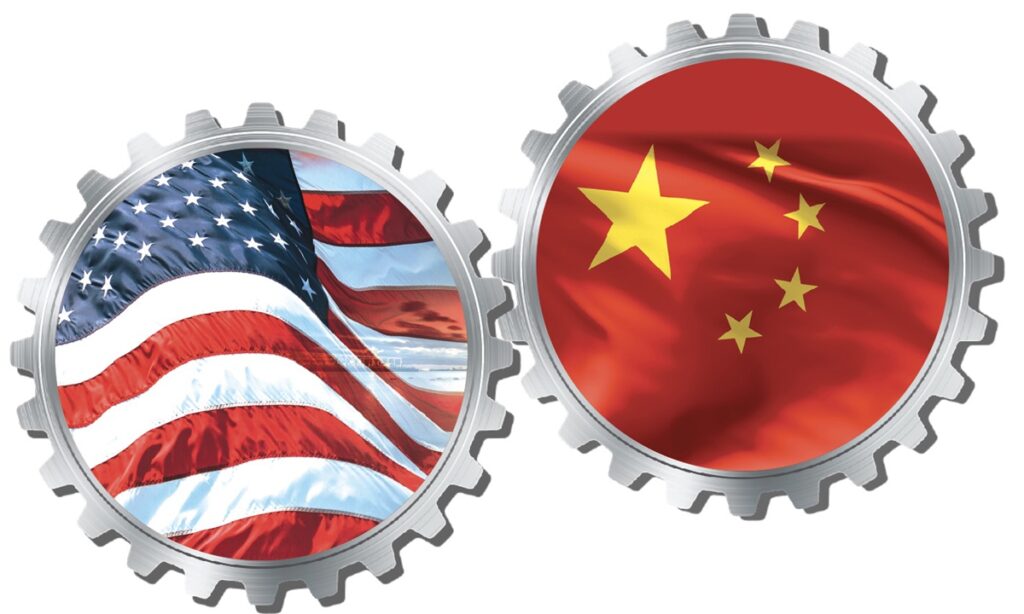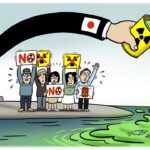China’s tech reliance necessary to face suppression from West: analysts
The US’ escalated technology war against China has continued at full steam. But it seems that the US’ attempts to suppress China’s science and technology development have failed. However, US high-tech companies and US allies’ companies have already suffered huge losses.
In the face of a US blockade, China has insisted on achieving self-reliance and strength in science and technology while actively seeking international cooperation in sci-tech sector. As a result, a large number of major sci-tech innovation achievements have emerged. The new Huawei Mate 60 Pro is one of the examples. The futuristic smartphone has been marked as China’s important breakthrough in the high-end smartphone market.
But analysts also said despite the current tech progress, China should be cautious and prepared for a prolonged US technology blockade and possible escalation of the tech war.The US has been brewing a new round of suppression policies. The situation, in which China’s core technologies are subject to other countries, has not yet changed completely. China should continue to strengthen independent tech innovation, Zhang Xiaorong, director of the Beijing-based Cutting-Edge Technology Research Institute, told the Global Times on Saturday.
“China has a strong desire to stop the tech war but is bound to accelerate its own tech reliance,” said Zhang.
On October 7, 2022, the US Bureau of Industry and Security issued sweeping new controls on exports of advanced semiconductor manufacturing equipment technology to China, which is seen as the prelude of US escalation of its tech war against China.
Such tightened tech blockade has continued over the past year. As one of the latest actions, US politicians on Friday sent a letter to the US President’s National Security Advisor Jake Sullivan urging the Biden administration to take immediate tougher measures in regulating chip exports to China, including action against SMIC and Huawei, Reuters reported.
However, after a year, the technology war provoked by the US has deviated from its preset track, and is far from its expected “victory,” wrote an article published on the official WeChat account of China’s Ministry of State Security on Saturday.
The export control measures cannot contain China, and even in the best of circumstances they are merely a tactic to delay China’s tech development. China’s growing self-reliance in high-level science and technology is unstoppable, said the ministry.
Backfiring on US and its allies
The US tech blockade has backfired on the US and its allies, analysts said, noting that the global technology industrial chain and economy have also been affected.
In fact, US’ export restrictions have sparked concerns among business communities in the US and Europe. And their fears are justified. Most US chip companies are struggling since they derive more than 30 percent of their revenues from China, according to GlobalData.
For example, Intel saw a decline in revenue of 15 percent year-on-year to $12.9 billion in the second quarter of 2023. Its chip division, called the Data Center and AI, also saw a loss of 15 percent year-on-year.
In August, Nvidia CFO Colette Kress issued a warning during the company’s earnings call that further US export curbs on its chips to China would risk a “permanent loss” for US semiconductor firms, according to CNBC.
“If they (Chinese companies) cannot get those machines, they will develop them themselves. That will take time, but ultimately, they will get there,” ASML CEO Peter Wennink said in a January interview with Bloomberg.
Determination to achieve self-reliance
The US government may take into account the interests of these companies, as well as the interests of the US technology industry, and adjust its technology policy toward China to mitigate the losses, said Zhang.
“But the US government’s China policy is a complex issue, involving political, economic, security and other aspects,” said Zhang.
Hu Qimu, a deputy secretary-general of the digital-real economies integration Forum 50, told the Global Times on Saturday that the Biden administration is likely to continue to get tough on China, especially when the US election is approaching. Analysts stressed that the US will continue to pursue anti-globalization and de-sinicization policies in order to maintain its hegemonic status, like it has always done. The US used national forces to curb and suppress other technology companies. Alstom of France, Siemens of Germany and Toshiba of Japan have all been subjected to its “vicious attacks.”
Therefore, China still needs to continue to make breakthroughs in scientific and technological innovation, said Zhang, adding that China’s recent scientific and technological progress does not mean that China’s technology industry, especially the chip industry, is at a world leading level.
China should promote scientific and technological development and innovation through international cooperation, said Zhang.
“In the future, China’s computing technology industry may continue to be suppressed, especially in artificial intelligence, 5G, chips and other fields. In addition, areas where China has an advantage, such as lithium-powered batteries and electric vehicles, are also likely to encounter US repression,” said Zhang.
Challenges remain
The US government has comprehensively upgraded its strategy of scientific and technological containment against China. The US’ determination to fully “decouple” from China in key technological areas is enduring, said Hu.
In fact, the US’ scientific and technological containment of China has occurred over the decades. The history of China’s scientific and technological development has evolved in response to the historical suppression by the US and the West, analysts noted.
In order to maintain its hegemonic prestige, the US is further carrying out comprehensive suppression against China in recent years. The Biden administration has urged its European allies to join the US in a “long-term, strategic competition” against China. Senior Biden administration officials have frequently used the term “threat” to define China, said Hu.
“Through tech blockade, the Biden administration is trying to delay China’s catch-up pace with the US,” said Hu, adding that countries ranking the second in terms of economy were always targets of the US.
In par with the tech blockade, the US has launched a trade war of unprecedented scale against China, while brewing a financial war, pushing for the “decoupling” of the two economies, as well as engaging in the so-called restructuring of industrial and supply chains.
But the US-initiated tech war and suppression against China will only hurt itself at the end, analysts noted.
“Part of China’s tech industries had relied on the US in the past, but as a result of the ongoing US tech blockade, China’s tech industries, especially semiconductor industry, will form an ecosystem of China’s own technologies,” Hu said.
(Global Times)




